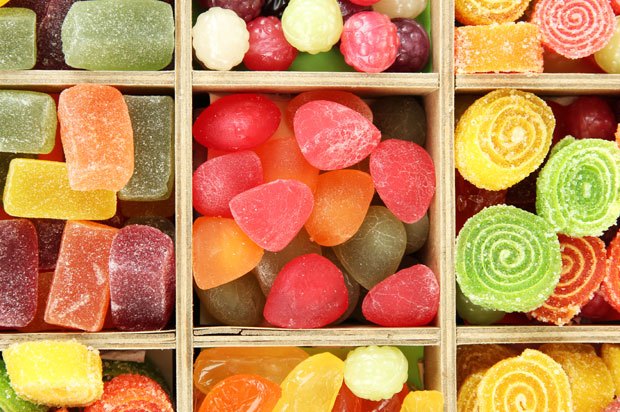Diabetes

What is diabetes?
What is diabetes and how does it affect your life? Can you drink alcohol if you’re diabetic? And does diabetes affect your love life? Read on to find out.
What is diabetes?
Diabetes is when your body can’t use glucose (sugar) properly due to lack of insulin. As a result, the sugar level in your blood gets too high. Your body is not able to turn glucose into energy, which results in fatigue, weight loss and frequent urine passes. In the long run, the condition also causes serious complications such as blindness, kidney failure, heart disease and stroke, as well as nerve damage that could, in extreme cases, lead to amputations.
Could I get diabetes?
Although type 2 diabetes usually appears in older people, it’s growing more common in young people too. Diabetes isn’t just caused by eating too much sugar, as lots of people think, but being overweight or obese puts you more at risk. You’re more likely to develop type 2 diabetes if:
- You’re of Asian or African-Caribbean origin
- You have a family history of diabetes
- You’re a man with a 37 inch waist or a woman with a 31.5 inch waist or above (if you’re worried that your weight isn’t healthy, read our article ‘what is a balanced diet’ here)
For most people, there’s only a 0.5% chance they’ll develop Type 1 diabetes, but if someone in your family has type 1 diabetes there’s a 6% chance you will too.
What are the symptoms of diabetes?
The symptoms of diabetes are:
- Increased thirst
- Going to the loo all the time – especially at night
- Extreme fatigue
- Weight loss
- Genital itching or regular episodes of thrush
- Blurred vision
Type 1 diabetes develops more quickly than Type 2, and the symptoms are normally a lot more obvious. Because of this, some people wrongly describe Type 2 diabetes as ‘mild’ diabetes. But there is no such thing as mild diabetes – all diabetes should be taken seriously and treated properly.
What is a hypo?
Hypoglycaemia (a hypo) is when your body reacts to low blood glucose levels. Symptoms include shaking, sweating, hunger, tiredness, blurred vision, lack of concentration, headaches, feeling moody and going pale. In serious cases you could lose consciousness.
If you have a hypo you need some sugar – try a sugary drink, sweets, juice, glucose gel or glucose tablets. Biscuits or chocolate aren’t as good because they’re high in fat so it takes your body longer to absorb the glucose.
You can prevent hypos by eating at every meal, especially carbohydrates, and taking your diabetes treatment correctly. Avoid fad diets, they often miss out on key foods.
Will diabetes affect my love life?
Not really, but vigorous sex can sometimes cause a hypo. So warn your partner that if you go pale and start shaking it’s probably due to lack of glucose – not intense pleasure – and they need to help you get some sugar in your system.
Can I drink alcohol if I have diabetes?
Yes, but alcohol makes a hypo more likely so take some precautions:
- Don’t drink on an empty stomach
- Stick to three units a day for men and two units for women
- Tell the friends you’re with what a hypo looks like and how to treat it
- Carry diabetes ID with you so people realise if you’re having a hypo instead of thinking you’re drunk
- Drink water between alcoholic drinks
- Eat before you go to bed
What are the types of diabetes?
There are two different types of diabetes:
Type 1 diabetes: Develops when the pancreas doesn’t produce insulin. The cause of the damage is still unknown, but it’s most likely to be triggered by a viral or other infection. It normally starts at a younger age.
Type 2 diabetes: Is when the body doesn’t produce enough insulin or the body doesn’t react to insulin properly. It’s linked to obesity so normally develops later in life.
There are other types of diabetes, including certain diseases of the pancreas, but they are very rare.
How is diabetes treated?
Although diabetes can’t be cured, it can be treated very successfully. If you have Type 1 diabetes, you will need insulin injections for the rest of your life; either two or four injections each day. This treatment is combined with a healthy diet that contains the right balance of foods. Your doctor or diabetic nurse can teach you to measure your own glucose levels, so you can adjust your insulin and diet.
People with Type 2 diabetes also need to eat a healthy diet and are usually prescribed tablets to help increase the quality or quantity of insulin.
You need regular medical check-ups, at least once a year, and to follow the treatment plan carefully.
More support with diabetes
- Have you got diabetes or do you know someone who does? Share your experience on our discussion boards.
- Find out more about conditions like diabetes in The Mix’s body problems resources here.
- Visit the NHS website for more information. You can get quick advice when it’s not an emergency on 111.
- Diabetes UK support people with Type 1 and Type 2 diabetes in the UK. Call the helpline on 0345 123 2399.
Photo of sweets by shutterstock.
Next Steps
- You can visit NHS Choices for more information. You can get quick advice when it's not an emergency on 111.
- Diabetes UK support people with Type 1 and Type 2 diabetes in the UK. Call the helpline on 0345 123 2399.
- Chat about this subject on our Discussion Boards.
By The Mix Staff
Updated on 09-Nov-2022
No featured article














